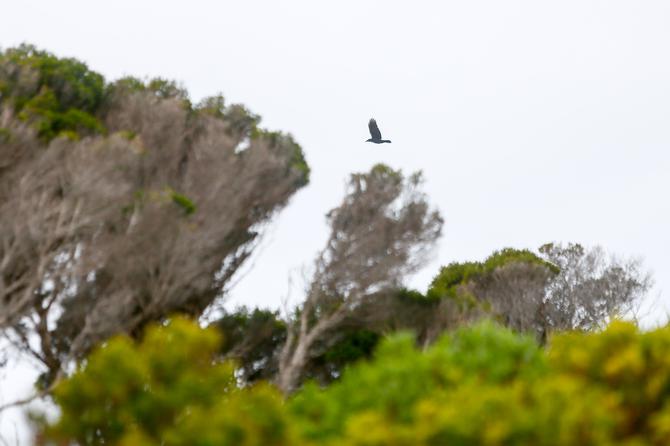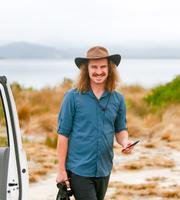While birds and native predators may seem like an odd coupling, a recent study by University of Tasmania ecologist Matthew Fielding suggests that reintroducing native predators to the islands could help rebalance the ecosystem and protect our more vulnerable bird species.
Known as ‘trophic rewilding,’ the process would see native predators extinct to the islands such as wedge-tailed eagles, Tasmanian devils and quolls, reintroduced to help preserve the island’s birdlife.
The method would aim to reduce threats to native birds on the islands caused by an overabundance of species such as wallabies, forest ravens and feral cats.
“Wallabies are overgrazing on the native habitat and stopping regrowth of new vegetation, which is critical habitat for birds to nest and forage,” said Matt.
“Ravens are incredibly intelligent so they’re outcompeting with birds like the threatened King Island black currawong but also preying on small birds and their eggs. Meanwhile, feral cats have no competition, so they’re top dog on the islands and they’re just eating everything.”
Matt said there was a desperate need for new and practical approaches to threatened bird conservation on the islands, particularly in the case of the more heavily inhabited King Island where forest raven populations are exploding.
The top three Australia bird species that are most likely to go extinct next, the King Island brown thornbill, King Island scrubtit and orange-bellied parrot, all either call King Island home or depend on the island during migration.

A raven in flight on Flinders Island
“The island has already lost the King Island emu, a charismatic dwarf sub-species, and we don’t want to see any more extinctions – so trophic rewilding could be one important solution.”
Fossils of some native predators likely to have become extinct thousands of years ago, such as the Tasmanian devil, have been found on the Bass Strait Islands. Other species were thought to have become extinct on the islands following European settlement, due to over-hunting and habitat loss.
In a recently published opinion piece Matt argued that reintroducing the extinct predators and restoring species interactions could promote complexity and a self-sustaining ecosystem.
“Recent research has demonstrated that these native predators can control populations of wallabies, ravens and cats, not only directly through killing, but also indirectly through behavioural changes,” he said.
Matt said any rewilding programs would need proper research, design and reflection, as well as local community involvement in the decision-making process, to be successful.
“Sure, rewilding is not always a definitive or cost-free solution, however we are in desperate need of novel approaches that can boost our currently inadequate conservation efforts,” he said.
“At this stage of the game things need to change before more species are lost.”
Photos: Patrick Gee
